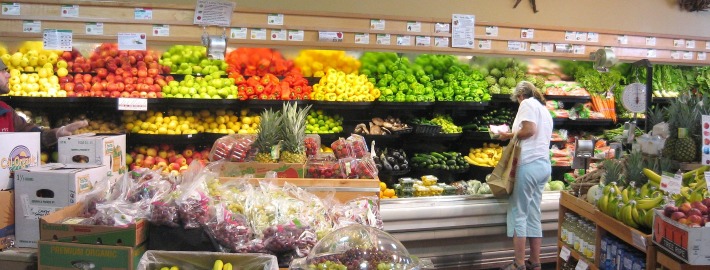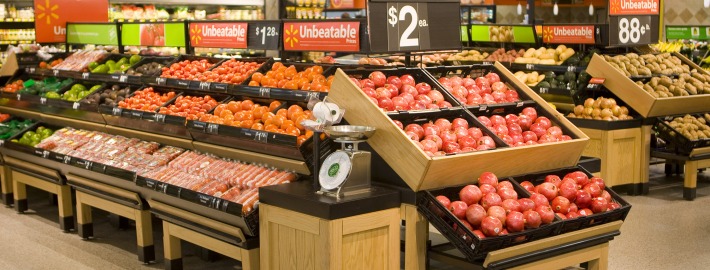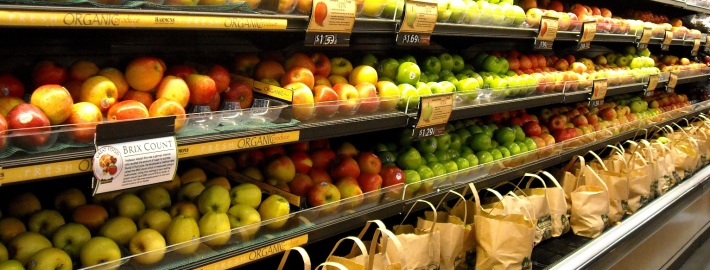Wholesale grocers are the bridge between the manufacturer and the retailer. Yes they are the ‘middleman’ everyone has come to despise. But few realize that without a dedicated distribution network, it is very difficult for products to reach the right stores and therefore the consumers.
The role of wholesale grocers
Wholesale grocers help with the merchandize distribution. They buy from the manufacturers and supply the products to retail stores, which is when the goods reach the consumers or the end-users.
How does a bar of soap reach the end-users or say a pack of cookies? When consumers buy a bar of soap from a retail store, they might not realize how the soap has reached their hands. The product distribution network works behind the scenes to reach consumers of all pocket sizes and needs. Some wholesale grocers supply to retail grocery stores and some sell to other wholesalers or distribution companies.
Wholesale grocers deal in perishable goods such as fruits, vegetables, dairy products, meat and other food stuff. They also deal in nonperishable products such as dry food products like cookies, snacks, candies, chocolates, canned foods, dry foods and such and also other products that a household needs like cleaning products, toiletries and such.
The types of wholesale grocery business
Wholesale grocers can work through different types of operations. Most common type is the wholesale distribution work. This is the classic ‘buying from manufacturers and selling to other wholesale grocers or retailers’ scenario. This is what comes to mind when people think of the wholesale business.
But there are times a manufacturer takes over the role of a wholesale grocer. Manufacturers might decide to not work through wholesale grocers and reduce the profits of their own. When such is the case manufacturers build their own network to deal with the sales and play the role of wholesale grocers, distributing their own products to the retailers.
One other thing that is popular in the wholesale grocery trade is the network of distribution brokers or agents who sell to retail stores after buying goods either directly from the manufacturers or wholesale grocers.
The functions of wholesale grocers
Successful wholesale grocers are expert negotiators. They work with the manufacturers to buy their products at the best pricing, which would prove to be profitable for them and earn them the widest margins of profits when they sell the same to the retailers. And they negotiate the pricing with retailers and other distributors as well. Without this skill wholesale grocers can’t survive in the wholesale trade or can’t make much profits.
Successful wholesale grocers are expert communicators. This is a skill they need to deal with people they have to do business with at each stage of the distribution process. Effective communication is an essential element of every business irrespective of the size and the industry. But in the case of wholesale trade, it is a must as someone who is not a good communicator won’t be able to negotiate well.
Negotiations are required for profit margins, to get the largest discounts and to get the best promotional offers that might be seasonal or not. These promotional offers often become the attractions for retail businesses as they can pass the same offers to the consumers, which is always the plan. For instance, in the case of soaps of the same quality, a manufacture who offers a free soap with three bars of the same soap might sell more than another brand of soap with no offers. Or during holidays, say Christmas, shiny packages or discounts on gift items might make the consumer really happy.
So a manufacturer might not always offer discounts or offers but a wholesale grocer might need to negotiate these out of them to increase their own profits margins. Then the expert communicators can negotiate the offers for them and not other wholesale grocers. This is business after all. A retailer might want to buy good from a wholesale grocers who has products with offers or promotions than from a grocer who has none or less attractive offers.
Successful wholesale grocers are blessed with good people skill or develop these over the years. One of the components through which Businesses thrive is the working relationships formed over the years. The trust that builds between say, a manufacturer and a distributor or a wholesaler and a retailer is what ensures long-term work and continued business.
Successful wholesale grocers are endowed with good finance skills. Wholesale business is the business of managing the slightest of margins. This is what makes a wholesale grocer profits. Even a tiny profit margin can ensure huge sums of profits over a period of time. Good money skills are therefore a quality every wholesale grocer needs to thrive in this business.
Successful wholesale grocers have excellent organization skills. Wholesale grocers need to maintain their own warehouses to store their goods, manage a fleet of vehicles needed to transport their stuff from one place to another and manage their employees at various stages of the business. Then there might be shipping involved if they deal in products that are being shipped to them by a manufacturer. Going to ports, doing the necessary paperwork and dealing with customs are not easy functions to perform. All these require a great set up that is only possible through god organizational skills.
Successful wholesale grocers need quick decision-making skills. Quick-thinking is a prerequisite to success in any business. More so when one needs to quickly decide on a pricing decision or think of placing a new product in the market, which could prove risky business. For instance manufacturers often give heavy discounts on goods that have some minor defects but are still usable. Wholesale grocers will need to quickly think if they can place this product with a retail store and if yes, then at what geographical location.
Successful whole grocers need ample patience. This is not the business of the timid. One needs to be fierce but still be patient with the several people involved in many distribution channels.







